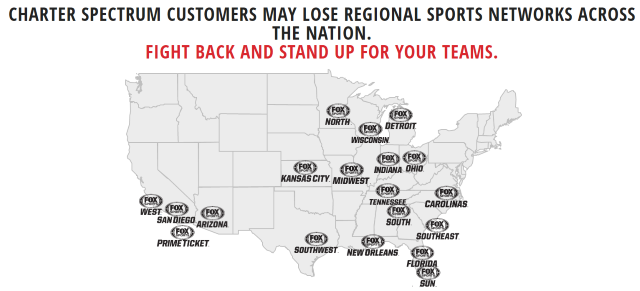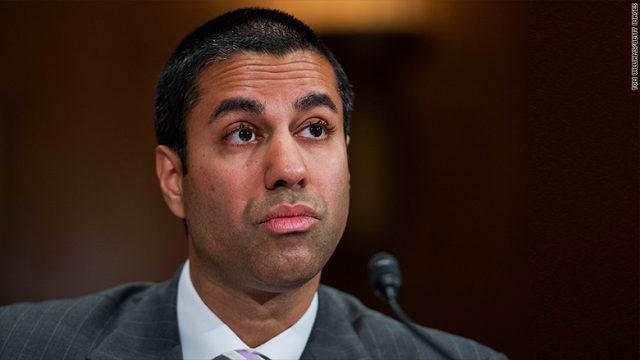FCC chairman Ajit Pai today announced he will appoint Charter Communications’ former general counsel as the next head of the FCC’s Consumer and Government Affairs Bureau.
Patrick Webre has taken several trips through D.C.’s revolving door over the last seven years, serving 11 months as an associate chief of that same bureau under former FCC chairman Julius Genachowski. Starting in November 2010, Webre took a position as senior director and senior counsel at Charter Communications. Starting in 2012, Webre was hired by Huron Consulting Group and later as a staff attorney at corporate D.C. law firm Jenner & Block.
Jenner & Block’s profile notes while working for Charter, Webre “was their primary advocate to commissioners and staff at the FCC, the National Telecommunications and Information Administration, the Federal Trade Commission, the Department of Justice, and Members of Congress and their staff.” In short, he was effectively Charter’s lobbyist.
Jenner & Block claims it achieves “excellent results for our clients,” which have included Comcast, AT&T, and Verizon, among others.
“Our lawyers combine broad experience with inside perspective into the inner workings of the FCC, the Department of Justice and other regulatory agencies across the country,” the firm’s website notes. “Our practice includes a former FCC general counsel and senior FCC policy advisor, a former senior counsel to the chairman for Transactions, numerous Supreme Court and Court of Appeals clerks and nationally recognized lawyers who have extensive experience handling cutting-edge telecommunications and media law issues. […] Together, we have tackled numerous important issues before the FCC and the courts, including net neutrality, media ownership, online video and content restrictions on video programming and video games.”
Jenner & Block does not represent you — the average American consumer. It represents big-pocketed telecom companies interested in getting their corporate agendas through the regulatory and legislative workings of Washington. In its message to clients, the law firm touts its achievements:
AGENCY PROCEEDINGS AND ENFORCEMENT ACTIONS
Jenner & Block represents telecommunications and media clients at the FCC, the Department of Justice and other regulatory agencies across the country. We have developed particular expertise in matters concerning video regulation, the Internet and other advanced services, spectrum and wireless issues, and telephone competition. Recent matters include program access and program carriage disputes, media ownership proceedings, proceedings on the status of on-line video providers, net neutrality, spectrum and interference proceedings, universal service and intercarrier compensation.
MERGERS AND ACQUISITIONS
Jenner & Block regularly represents media and telecommunications clients in mergers and acquisitions and other transactions involving license transfers. Our work includes both securing regulatory approval from the FCC and other regulatory agencies and, with our Corporate practice, negotiating and executing agreements. Representative transactions include Comcast-NBCU, AT&T-T-Mobile, Verizon-Frontier, Verizon Wireless-ALLTEL and CenturyTel-Embarq. We have also successfully represented clients in numerous radio and television station transactions.
Mr. Webre’s new job at the FCC is to ostensibly represent the interests of consumers. The Consumer and Governmental Affairs Bureau develops and implements the commission’s consumer policies, including disability access. Its consumer center is directly responsible for addressing consumer inquiries and complaints about some of the same cable and phone companies Mr. Webre used to represent.
Pai issued a statement suggesting Webre would be his perfect choice to replace current chief Alison Kutler, who was originally appointed by former FCC chairman Tom Wheeler.
“Consumers sit at the core of the FCC’s work, and the FCC’s Consumer and Governmental Affairs Bureau serves as our primary liaison to them,” said Pai in a statement. “Whether reviewing consumer complaints or developing policies to stop robocalls, CGB works hard to serve the public interest. Patrick’s skill and experience will enable us to continue this important mission.”


 Subscribe
Subscribe










